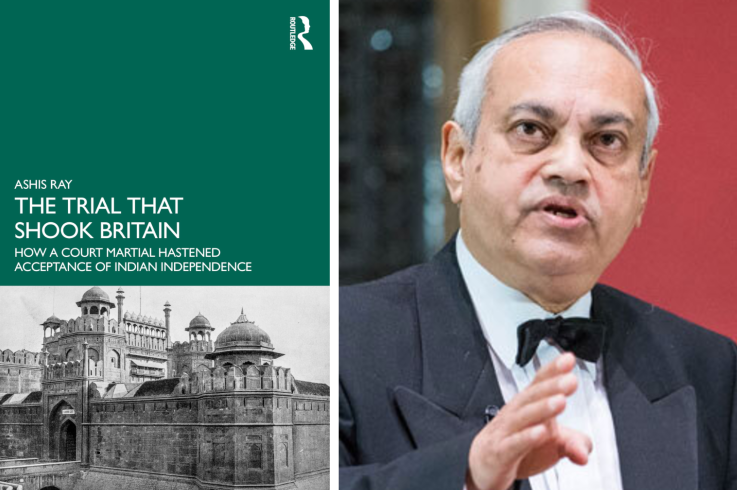INA trial was a watershed moment in Indian history, says author Ashis Ray

Team L&M
It is 80 years since the legendary Indian National Army (INA) trial began on 5 November 1945 at the Red Fort, Delhi. Veteran BBC and CNN broadcaster and journalist Ashis Ray details its impact on the Indian freedom movement in his latest book, The Trial That Shook Britain: How a Court Martial Hastened Acceptance of Indian Independence.
The work revisits one of the most defining moments in India’s struggle for independence: the court martial of three officers of Netaji Subhas Chandra Bose’s INA, Captain Shah Nawaz Khan, Captain Prem Sahgal and Lieutenant Gurbaksh Dhillon. They were Commissioned officers of the British-commanded Indian Army, they were put on trial by the British for waging war against the British monarch, King George VI. A death sentence hung over their heads. However, the exercise badly backfired as Indians en masse exploded in fury, ranks of the Royal Indian Navy mutinied and dissent arose in the Indian Army itself.
Nationwide Outrage
Responding to the nationwide outrage and the misgivings within the then British commanded Indian armed forces, General Sir Claude Auchinleck, Commander-in-Chief of the British Indian Army, commuted their sentences. As the book outlines, the trial and its aftermath became a defining moment in the history of decolonisation. It echoed arguments that enslaved people have every right to rebel against their colonial rulers and cannot be branded as traitors.
Speaking about the book, Ashis Ray said, ‘I was privileged to be elected an Academic Visitor at St Antony’s College, Oxford, which gave me a golden opportunity to research the subject and produce a thesis length paper, now a book. As Jawaharlal Nehru put it, “No trial in India either by Court Martial or in the Civil Courts has attracted so much public attention or has dealt with issues of such fundamental national importance”.’
The Trial That Shook Britain draws extensively on primary sources, including one of few surviving transcripts of the trial, General Sir Claude Auchinleck’s papers and British parliamentary records, to reveal how the event forced Britain to concede the principle of complete independence (purna swaraj) from its previous stubborn stance of dominion status. Ray presents the trial as a watershed moment in Indian history.
The book is recommended as a textbook for MA courses in Indian and South Asian History.

